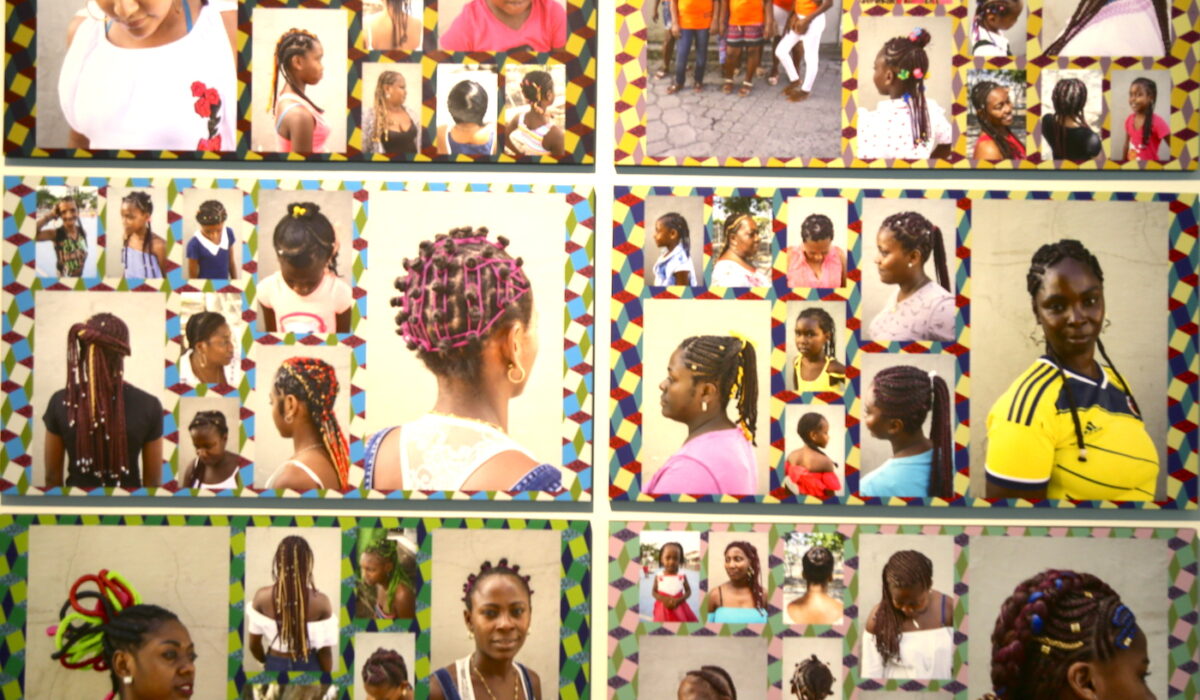For this assignment I wanted to highlight Astrid Liliana Angulo Cortés, a plastic artist whose work explores the identity and representation of Afro-descendants in Colombia.
Angulo Cortés was born in Nariño, Colombia, on the country’s pacific coast. She moved to Bogotá, the capital, at a young age. While the pacific coast has the largest Afro-descendant population in the country, Bogota has considerably less, owing to a legacy of racism. Angulo Cortés confronted the prevalence of stereotypes and ideas regarding Afro-Colombians but hardly saw accurate or self-representations. Her work recenters Afro-descendant people as active “producers of their own images beyond exoticism or paternalism” (Valoyes Villa, 2018).
Highlighted here are two of her photographic exhibitions. One named Quieto Pelo Tumaco, or The Still/Calm hair of Tumaco (a city within the department of Nariño), depicts several Afro-Colombian women at a community event celebrating black hairstyles. Angulo Cortés organized this event with the Las Varas Community Council to bring together Afro-descendant women in talking about “ancestral braiding traditions, fashion, style, and care of natural hair, […and] experiences and traditions of hair in the Pacific and on the Nariño coast” (Angulo Cortés, 2017). Often Colombians are depicted as having either straight or loosely curled hair, but Quieto Pelo shows a much wider range of hairstyles.

The second exhibition highlighted here is Un negro es un negro, where Angulo Cortés addresses what “Black” means in the Colombian imagination. Featuring a series of side portraits with oversized wigs, Angulo Cortés’ work shows the connection that Afro-descendants have to their past, their future, and each other, and how that connection is carried by each individual.



Citations
Angulo Cortés, A. L. (2017, August 27). ¡Quieto Pelo Tumaco! Tradición de los peinados y el cuidado afro. Facebook. https://m.facebook.com/events/tumaco/quieto-pelo-tumaco-tradici%C3%B3n-de-los-peinados-y-el-cuidado-afro
Astrid Liliana Angulo Cortés. (n.d.). C& AMÉRICA LATINA. Retrieved April 15, 2022, from https://amlatina.contemporaryand.com/people/astrid-liliana-angulo-cortes/
Carvajal González, J. (2022). L’œuvre d’Astrid Liliana Angulo Cortés. Cahiers d’études romanes. Revue du CAER, 43, 99–119. https://doi.org/10.4000/etudesromanes.13301
Valoyes Villa, S. (2018, July 24). Liliana Angulo Cortés y la redefinición del ser afro desde el arte. https://mujeresconfiar.com/liliana-angulo-cortes-y-la-redefinicion-del-ser-afro-desde-el-arte/